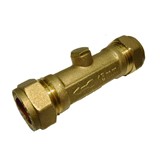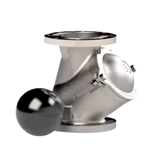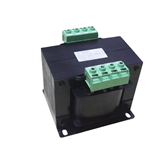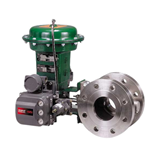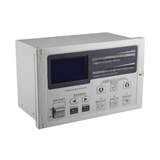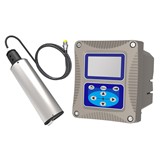Chris Williams reports exclusively for IndustrySearch.
Major retailers, multinational manufacturers, suppliers of everything from confectionery to pet food – they have all been either fined or issued court-enforceable undertakings in recent years for selling products that weigh less than their advertised weight.
If you think your company is too big or too small to fall foul of the laws governing trade measurement – think again.
In 2010 the National Measurement Institute (NMI) assumed responsibility for trade measurement regulation, ensuring all transactions where value is determined by weight or volume, are accurate and faithfully represented.
The NMI receives and investigates upwards of 500 complaints a month, mostly from consumers, who believe they've been sold short. While the largest number of complaints relate to the sale of petrol, pre-packaged goods are next on the list, making up over 20 per cent of all reported concerns.
Routine inspections
What's more NMI's compliance program is rigorous. The regulator conducts thousands of routine and targeted inspections and audits each year. In 2012-13 trade measurement inspectors tested 20,000 pre-packaged items, checking the correctness of labelling and the accuracy of the measurement's quantity.
More than 2200 non-compliance notices were issued, with fines for the same period amounting to $47,500.
In the last 12 months, enforcement ramped up further, and Bob Baldwin, Parliamentary Secretary to the Minister for Industry offered a blunt warning to those who deliberately, or inadvertently, flouted the law.
"Officers have issued more than $84,000 in fines to 63 businesses for dodgy measuring practices so far this financial year…the Australian government will ensure that you get what you pay for," Baldwin said.
"This will ensure continued consumer confidence in the national trade measurement system and help us stamp out those who are breaking the law."
The message then is simple. Get your house in order, particularly if you run what the NMI deems a high risk business, and operating a reliable and accurate checkweighing system is a good place to start.
Manual vs automated checkweighers
Smaller manufacturers have traditionally checkweighed their products manually with staff standing at the end of the line weighing products individually on a set of static scales.
Mark Dingley is the General Manager of Operations at Matthews Australasia, the distributor for German manufactured Bizerba checkweighing systems in Australia, and according to Dingley the two main negatives to manual weighing are that it's highly labour intensive, and inevitably the risk of human error.
"People get tired, and may miss an incorrect weight every now and then," Dingley told IndustrySearch.
"However, the reasons these smaller companies have persisted with manual systems is that checkweighers didn't used to be able to handle small weights accurately, so it was actually more effective for them to risk the human error, than the machine not handling product properly.
"These days, checkweighers — including the ones we have — can handle product right down to 10g, and smaller if required, with good line speeds."
The other reason for persisting with a manual system, Dingley said, was simply a matter of cost. While sophisticated checkweighing systems were once only in reach for larger companies with deeper pockets, that is no longer the case today.
"That's just not the case now. Again just looking at the checkweighers we have, it's very cost effective even for smaller manufacturers and even for those who have low-volume runs," Dingley said.
Technology advances
While the price of automated checkweighing systems has come down in recent years, the technology has not stood still. At the same time not all checkweighers are created equal, and Dingley cautions that you will get what you pay for.
"Checkweighers aren't a commodity item. Quality differences will impact their speed, weight capabilities and type of products they can handle," Dingley said.
"We've seen an evolution throughout the machine, with technological advances in line-speed capabilities, accuracy at very light weights and their ability to operate in wet areas.
"Also, there are different branches to checkweighing. For instance, weigh labellers weigh then label products and are used where the precise mass is important, say with meat, cheese, fruit, vegetables and convenience foods.
"Then there's weigh-price labelling, manufacturers need to label a product with a weight-dependent price, along with other information. These systems are typically used for meat, fish, cheese and milk, and the wholesale trade for fruit and vegetables."
Staying in check
According to Dingley, the problem of under or overweight product reaching the consumer was far more common once than it is today, not just because of the NMI's compliance activities, but both at the retailer's insistence, and because a competitive manufacturing landscape demands it.
"Retailers will quickly tire of manufacturers who supply products outside weight specifications. Their response will either be to fine the company, or for repeated offences, just drop it from their product range," Dingley said.
"Retailers' distribution centres need to run so smoothly these days, that there is no room in them for manufacturers who can't — or won't — supply what they say they will.
"Retailers do not want consumers repeatedly complaining about products that are a bit light, and if your product can be a bit each way, then they'll just deal with someone else.
"Supplying overweight product doesn't benefit the retailer or the customer — the customer certainly won't know and think they're getting a bonus. So there is just no benefit for anyone.
"(And) manufacturing — particularly in Australia — is very competitive; any gain in productivity will help a business increase profits and reduce waste. So to keep supplying even just 5g over the specified weight is literally giving your product away."
For those two business reasons, Dingley says, manufacturers today are a lot more stringent on the weight of the products going out their door being in the specified range, and automating your checkweighing process and removing manual human intervention as far as possible will help you achieve it.
- Suppliers
- New to IndustrySearch? Book a Demo
- Advertise with us
- Login
- Email Marketing
- Buyers
- Get Quotes
- Articles & Ideas
- Login
- Subscribe to newsletter
- My Details
- Get Quotes
- Automation & Control
- Automotive Workshop Equipment
- Commercial Cleaning Equipment & Supplies
- Construction Equipment & Heavy Machinery
- Conveyor Systems & Components
- Electrical & Power Generation Equipment
- Electronic Components
- Farming & Agriculture
- Food & Beverage Processing
- Forklifts & Forklift Attachments
- Hydraulic & Pneumatic Equipment
- Industrial Materials, Tools & Components
- Industrial Pumps
- IT Hardware & Industrial Computing
- IT Software & Applications
- Laboratory Equipment & Instruments
- Manufacturing & Industrial Equipment
- Material Handling & Lifting Equipment
- Metalworking & Machining
- Mining Equipment & Machinery
- Packaging & Labelling Machinery
- Pallet Handling Equipment
- Personal Protective Equipment
- Security & Surveillance
- Test & Measurement
- Transport & Logistic Equipment
- Warehouse Storage, Shelving & Racking
- Waste Treatment & Environmental Management
- Welding Machines & Accessories
- Woodworking & Joinery Machines
- Workplace Equipment
- Workplace Safety Equipment
- Get Quotes
- Automation & Control
- Automotive Workshop Equipment
- Commercial Cleaning Equipment & Supplies
- Construction Equipment & Heavy Machinery
- Conveyor Systems & Components
- Electrical & Power Generation Equipment
- Electronic Components
- Farming & Agriculture
- Food & Beverage Processing
- Forklifts & Forklift Attachments
- Hydraulic & Pneumatic Equipment
- Industrial Materials, Tools & Components
- Industrial Pumps
- IT Hardware & Industrial Computing
- IT Software & Applications
- Laboratory Equipment & Instruments
- Manufacturing & Industrial Equipment
- Material Handling & Lifting Equipment
- Metalworking & Machining
- Mining Equipment & Machinery
- Packaging & Labelling Machinery
- Pallet Handling Equipment
- Personal Protective Equipment
- Security & Surveillance
- Test & Measurement
- Transport & Logistic Equipment
- Warehouse Storage, Shelving & Racking
- Waste Treatment & Environmental Management
- Welding Machines & Accessories
- Woodworking & Joinery Machines
- Workplace Equipment
- Workplace Safety Equipment
Trusted by 1,000,000+ Australian industrial buyers
Buyers
- Discover products & solutions
- Login
- Subscribe To Newsletter
- Browse All Products
- Read Articles
Suppliers
Advertise
- Promote your products & solutions
- New to IndustrySearch? Book a Demo
- Login / Forgot Password
- Advertise Your Products
- Success Stories
- Email Marketing
- Suppliers
- Advertise with us
- Login
- Email Marketing
- Buyers
- Get Quotes
- Articles & Ideas
- Login
- Subscribe to newsletter
- My Details
Get Quotes
- Automation & Control
- Automotive Workshop Equipment
- Commercial Cleaning Equipment & Supplies
- Construction Equipment & Heavy Machinery
- Conveyor Systems & Components
- Electrical & Power Generation Equipment
- Electronic Components
- Farming & Agriculture
- Food & Beverage Processing
- Forklifts & Forklift Attachments
- Hydraulic & Pneumatic Equipment
- Industrial Materials, Tools & Components
- Industrial Pumps
- IT Hardware & Industrial Computing
- IT Software & Applications
- Laboratory Equipment & Instruments
- Manufacturing & Industrial Equipment
- Material Handling & Lifting Equipment
- Metalworking & Machining
- Mining Equipment & Machinery
- Packaging & Labelling Machinery
- Pallet Handling Equipment
- Personal Protective Equipment
- Security & Surveillance
- Test & Measurement
- Transport & Logistic Equipment
- Warehouse Storage, Shelving & Racking
- Waste Treatment & Environmental Management
- Welding Machines & Accessories
- Woodworking & Joinery Machines
- Workplace Equipment
- Workplace Safety Equipment
Get Quotes
- Automation & Control
- Automotive Workshop Equipment
- Commercial Cleaning Equipment & Supplies
- Construction Equipment & Heavy Machinery
- Conveyor Systems & Components
- Electrical & Power Generation Equipment
- Electronic Components
- Farming & Agriculture
- Food & Beverage Processing
- Forklifts & Forklift Attachments
- Hydraulic & Pneumatic Equipment
- Industrial Materials, Tools & Components
- Industrial Pumps
- IT Hardware & Industrial Computing
- IT Software & Applications
- Laboratory Equipment & Instruments
- Manufacturing & Industrial Equipment
- Material Handling & Lifting Equipment
- Metalworking & Machining
- Mining Equipment & Machinery
- Packaging & Labelling Machinery
- Pallet Handling Equipment
- Personal Protective Equipment
- Security & Surveillance
- Test & Measurement
- Transport & Logistic Equipment
- Warehouse Storage, Shelving & Racking
- Waste Treatment & Environmental Management
- Welding Machines & Accessories
- Woodworking & Joinery Machines
- Workplace Equipment
- Workplace Safety Equipment
Trusted by 1,000,000+ Australian industrial buyers


